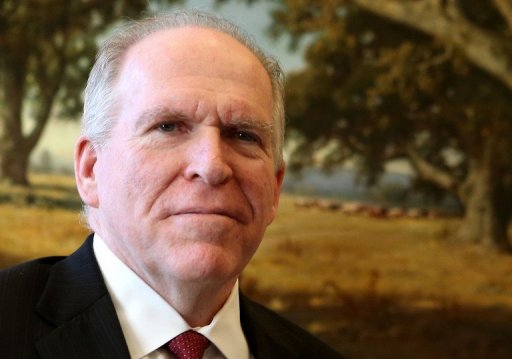The hard-nosed architect of the US drone war against Al-Qaeda, John Brennan, will face tough questions about secret assassinations Thursday from senators weighing his nomination to lead the CIA.
The confirmation hearing before the Senate Intelligence Committee promises to focus a rare public spotlight on President Barack Obama’s covert campaign to hunt down Al-Qaeda suspects worldwide in drone bombing raids.
The administration has sought to shroud the raids in secrecy but the threat of lawsuits and frustration from lawmakers has piled pressure on officials to publicly defend the conduct of the drone war.
Although Brennan is expected to be approved as the next director of the Central Intelligence Agency, some senators see the hearing as a chance to question the legality of the drone campaign and to extract details that the White House has long refused to divulge.
Two days before the hearing, a Justice Department document leaked to news media that outlines the legal justification for killing a US citizen abroad. The document, which says an American can be targeted if he is a senior, “operational” figure in the Al-Qaeda terror network, reportedly had been passed to lawmakers last year.
Brennan, 57, a veteran of the Central Intelligence Agency, where he worked for 25 years, is widely portrayed as the most influential figure in the administration when it comes to the drone war and counter-terror policy.
Critics paint Brennan as running roughshod over legal concerns and presiding over a shadow war in which the US president wields enormous power but is not held accountable by the courts, Congress or the public.
Senators “should not vote on his nomination until all Americans know whether the decisions Brennan made at CIA headquarters and in his White House office comply with our laws and uphold basic American values.”
But former officials and colleagues say Brennan is no villain and instead has exerted a restraining influence, rejecting requests for broader strikes from the CIA and the military and pushing through stricter rules to avoid local backlash or civilian casualties.
Some rights advocates and commentators have called for placing the drone strikes entirely under military control, to make the raids more transparent and remove the “covert” authority that maintains a veil of secrecy.
Brennan, a former CIA station chief in Saudi Arabia, was on a short list for the CIA director’s job when Obama entered office in 2009. But he bowed out in the face of opposition over his role as a senior official when the spy agency used harsh interrogation methods, including waterboarding or simulated drowning, that have been widely condemned as torture.
In his written responses to the intelligence committee before the hearing, Brennan said he was aware of the interrogation methods but had no role in their “creation, execution or oversight.”
He said he raised objections to the methods with other officials privately and then publicly criticized the approach after he left the CIA.
Brennan said such harsh methods sometimes produced information but ultimately were “counter-productive.” Obama has banned the techniques.
Asked about former secret CIA prisons overseas or how the United States planned to hold terror suspects captured abroad, Brennan said: “The CIA is out of the detention business and it should stay that way.”

COMMENTS
Please let us know if you're having issues with commenting.